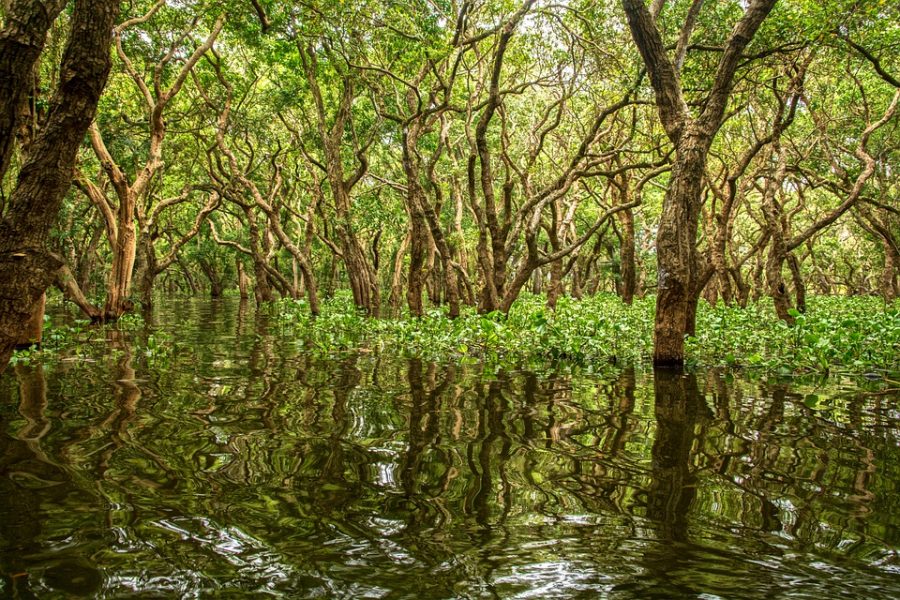
Apple announces partnership for mangrove conservation in Raigad

Tech giant Apple has announced a partnership to protect the crucial mangrove ecosystem and the livelihoods around it in Raigad, Maharashtra, in line with its efforts to support communities around the world most impacted by climate change.
Towards this, according to a statement, Apple has awarded a grant to the Applied Environmental Research Foundation (AERF) in 2021 to work with the local community for protection of 2,400 hectares mangrove forest in the region, which provided an important buffer against the dangerous impacts of climate change.
Through the partnership, AERF will enter into conservation agreements with local community members, offering support in exchange for conserving and protecting the mangroves on their land.
“Ultimately, the goal of the partnership is to help transition the local economy to one that relies on keeping mangroves intact and healthy,” the company statement said.
“The fight against climate change is a fight for the communities around the world, whose lives and livelihoods are most threatened by the crisis, and that’s where we have focused our work from Colombia to Kenya to the Philippines,” Lisa Jackson, Apple’s vice president of Environment, Policy and Social Initiatives, said.
Also read: India’s forest, tree cover up by 2,261 sq km in last two years: Report
“The new partnership in India continues this momentum, helping a community benefit economically from the restoration of the mangrove forests that protect against the worst impacts of climate change,” Jackson added.
Through the new partnership, AERF will also engage Conservation International to verify the climate benefits of the mangroves, accounting for the carbon sequestered in both the trees and soil.
In addition to protecting coastal communities from climate impacts like the unpredictable monsoons and rising tides that threaten the Raigad district, mangroves act as carbon sinks that absorb carbon dioxide from the atmosphere and store it in their soil, plants and other sediment.
“To collaborate with Apple and Conservation International is a great opportunity to explore how mangrove conservation and community benefits can go hand in hand,” said Archana Godbole, director of AERF.
“Though mangrove conservation issues are diverse and different in each place, here in our project area, opportunities are also many,” Godbole added.
With support from Apple, Conservation International’s blue carbon finance project in Cispatá Bay, Colombia, was the first in the world to accurately measure, not only the carbon that mangrove trees store in their trunks and leaves, but also what they sequester in their soil. This improved accounting enables communities to benefit from the full economic value of the ecosystems they sustain.
AERF will apply the learnings from the Colombia project to their work in Raigad, with plans to establish a model that can be scaled across India.
In addition to protecting the existing mangroves in the area, Apple’s grant supports the restoration of mangroves across a 50-hectare area where they have degraded, as well as the purchase and distribution of portable bio-stoves that allow people to cook without cutting down mangroves for firewood.
The statement further said that Apple will continue to focus on communities most impacted by climate change as it pursues its environmental goals.
Through the company’s $200 million Restore Fund, launched last year with Conservation International and Goldman Sachs, Apple will be making investments in forestry projects that aim to remove carbon from the atmosphere, while generating a financial return for investors.
Also read: Indian researchers discover new way to solve food crisis by mangroves
Through its Power for Impact program, Apple provides under-resourced local communities around the world with access to renewable energy while supporting economic growth and social impact.
“All of these efforts are part of Apple’s broader goal to become carbon neutral across its entire global supply chain by 2030,” the statement added.
(With inputs from Agencies)

